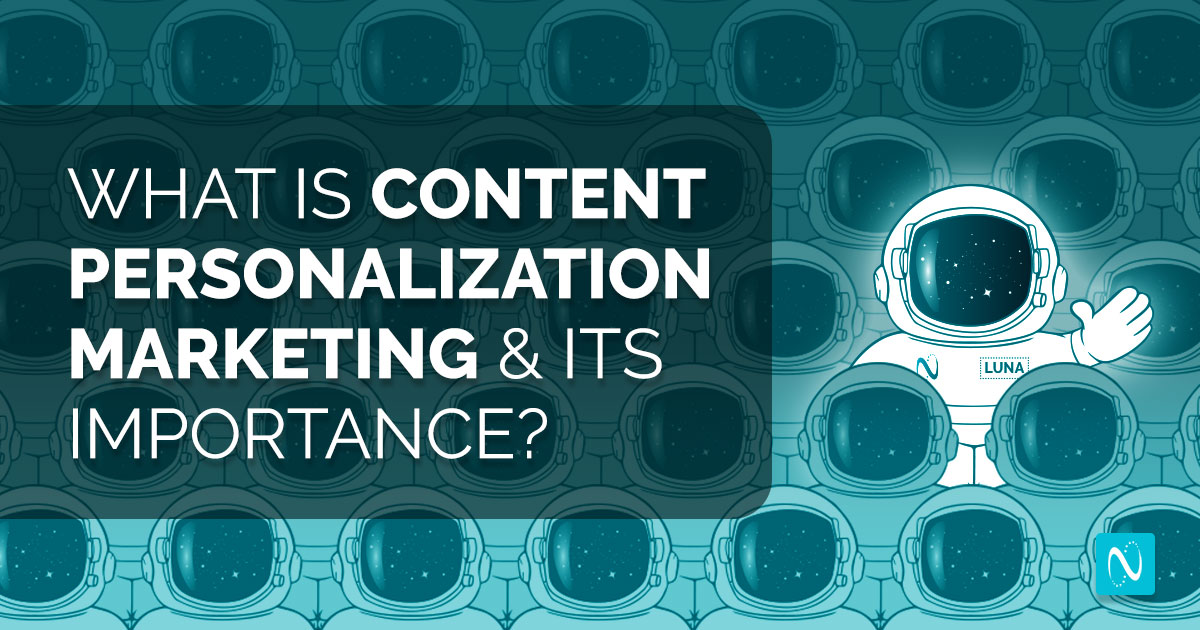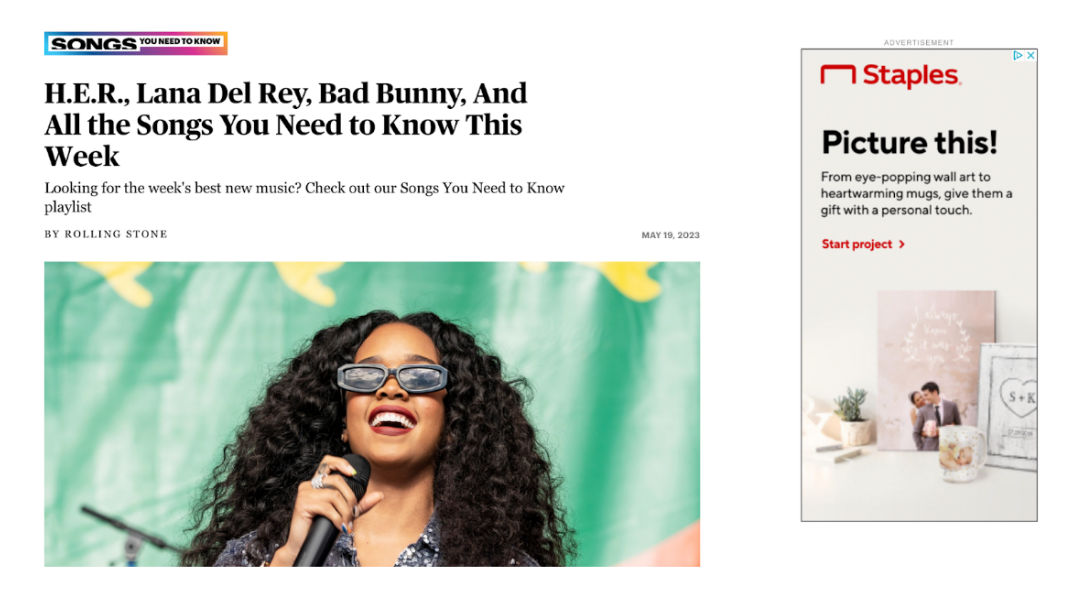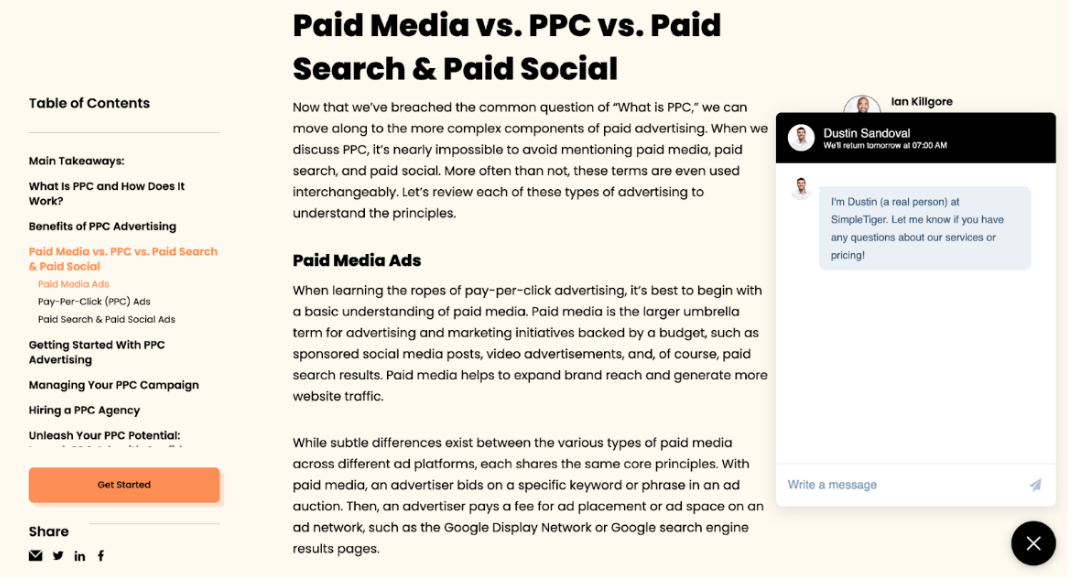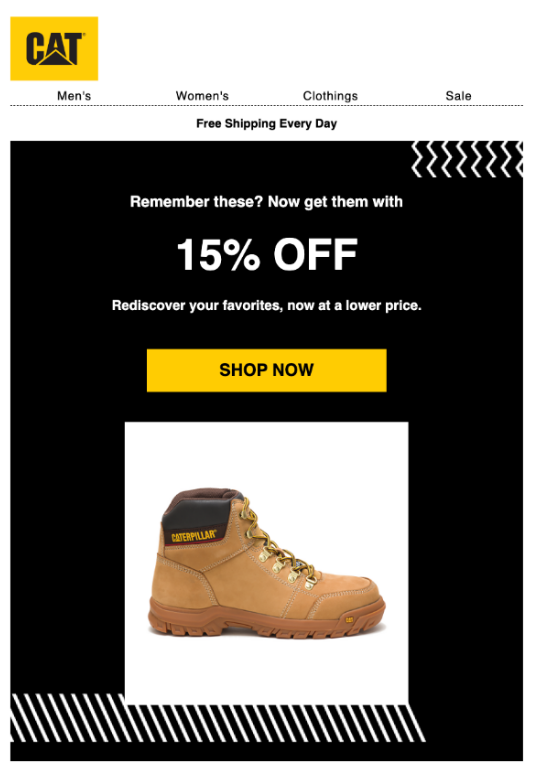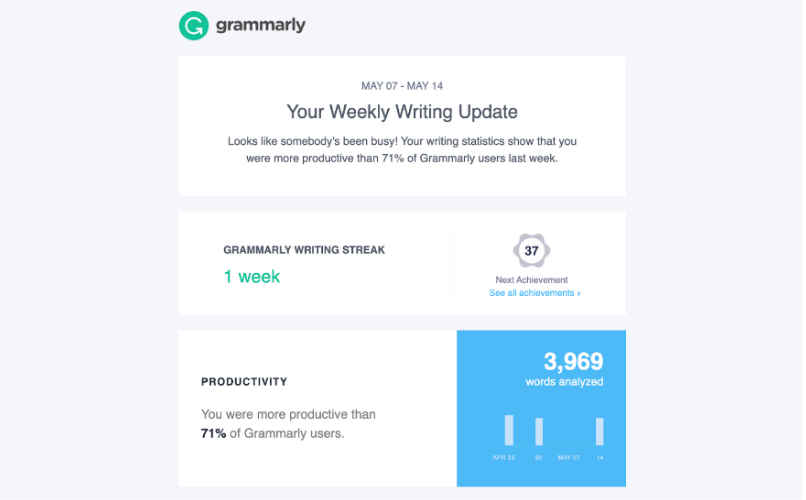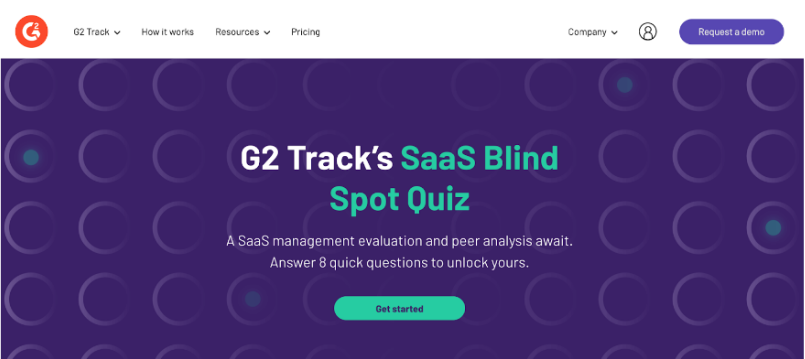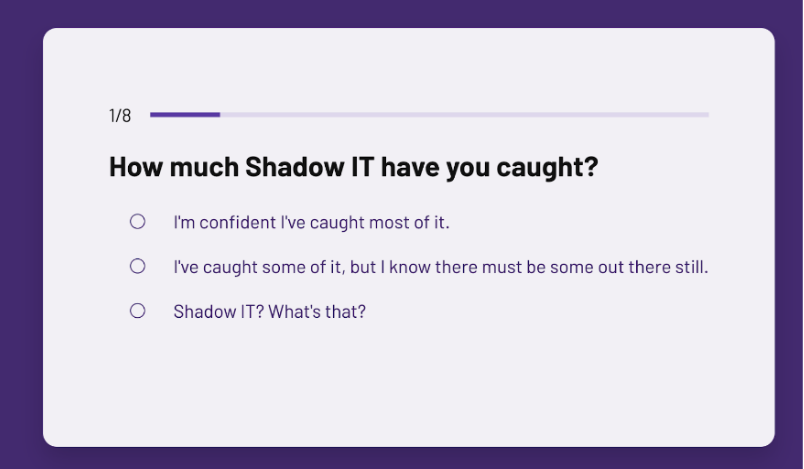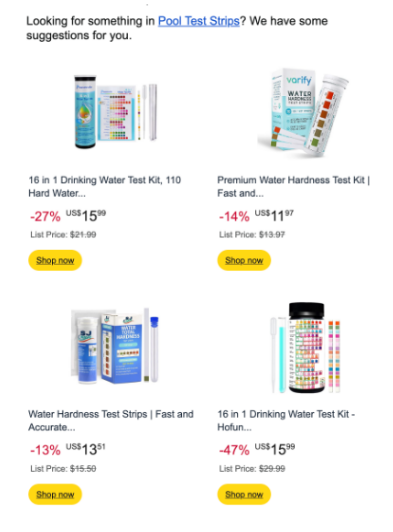Gone are the days of generic content and ads that lacked any semblance of segmentation.
When 90% of customers find personalization efforts appealing and it drives revenue growth of up to 30%, it’s not a question of whether or not content personalization marketing is relevant, but how to achieve it at scale.
Content personalization marketing caters to all touch points throughout the customer experience journey. Through a combination of first-party data and artificial intelligence (AI) powered predictive analytics, content is tailored based on each user’s propensity to convert.
To translate effective content personalization marketing into positive purchasing behavior, here’s what you need to know—complete with recent examples.
What is content personalization?
Content personalization is like being a restaurant owner who knows each regular customer’s order. It’s a strategy used in marketing where companies tailor their content—things like blog posts, videos, or advertisements—to each user’s specific interests and preferences.
For example, let’s say a prospect watched a webinar about incorporating AI into your customer support; a company using content personalization would surface more relevant content related to this topic. They use data about what you interact with and like in order to improve the sales process. Essentially, it’s a way for businesses to connect with their audience on a deeper, more personal level.
6 types of customized content
Today’s consumers anticipate that brands will utilize the numerous data points they’ve collected over time—like alert preferences and purchase history—to better understand and reflect their buying needs and provide them with a more tailored shopping experience.
Enter content personalization marketing.
Content personalization marketing allows for each consumer interaction to be totally unique, helping to eliminate barriers along the customer journey to ultimate conversion. Personalization can take on several forms, including but not limited to these 6 types of customized content.
1. Dynamic content
Dynamic content adapts or changes based on user data, such as in-session behavior, past behavior, or previously indicated preferences. Typically, a specific variable, such as user location, gender, or other demographic detail, acts as a signal to inform rule-based triggers that influence the content.
Dynamic content can be utilized in numerous areas of a marketing campaign, including social media advertisements, on-site content, and email marketing, to customize the content a user sees across different channels in real-time. The adaptability of dynamic content makes it highly personalized.
Ex: Dynamic on-site eCommerce ads
If you’ve ever felt like the internet magically knew what you were searching for, dynamic content is likely responsible. Dynamic ads, such as this Staples on-site banner ad, display specific products or offers to users who have previously visited a brand’s website or searched for a certain query. Marketers only need to create a dynamic ad template, and the ad network customizes the rest.
2. Personalized chatbots
Chatbots have significantly risen in popularity over the past few years, due in part to the recent COVID-19 pandemic, which restricted most sales and marketing conversations to online channels. Chatbots quickly became a solution to provide personalized insights in a fraction of the time.
Chatbots leverage conversational AI technology, such as natural language processing (NLP) in large language models (LLM), to understand and adapt to customer preferences and behavior. Chatbots can deliver personalized services and recommendations, and answer specific queries in real-time.
Ex: Online sales associates during offline hours
It’s rare for sales associates to be available around the clock, especially for small-scale or start-up businesses that lack substantial human capital. Personalized chatbots, such as this one, can answer immediate queries about services or pricing and even schedule a sales call to not only capitalize on offline hours but also ensure customers receive high-quality assistance at any hour.
3. Retargeting campaigns
Retargeting campaigns, often referred to as remarketing campaigns, display specific products or offers to users who have previously visited your website, interacted with your content, or otherwise signaled interest. For instance, a user who signed up for your email list is often later retargeted.
Because the users in a retargeting campaign have already indicated an interest in your product or service, further personalizing the content helps increase the chances of a conversion by narrowing in a user’s pain points or wants. They are particularly beneficial for upselling and cross-selling.
Ex: CAT Footwear email campaigns
Like dynamic content, retargeting campaigns are something that seemingly follows users across the digital landscape based on their behavioral history. For example, take a look at this CAT Footwear promotional email, which is personalized with a user’s previous viewing history to encourage a sale.
4. Usage reports
Usage reports are a type of content personalization marketing that primarily applies to software as a service (SaaS) and other digital products, such as a typing assistant like Grammarly or a fitness tracker like Oura Ring. This content type serves multiple purposes along the customer journey.
In the consideration phase, the addition of personalized insights can act as a unique selling proposition (USP) compared to competitor brands. Once a customer converts, the routine delivery of personalized reports can help customers better use the product and drive ongoing loyalty.
Ex: Grammarly weekly usage reports
Grammarly, an app to help users improve their communication, delivers weekly usage reports to its customer base on how their writing has progressed. Personalized data points, such as productivity and vocabulary usage, enhance the value of a subscription and encourage long-term engagement.
5. Quizzes
Online quizzes aren’t just to figure out ‘Your Celebrity Doppelganger’ or ‘What Ice Cream Flavor matches your personality.’ Many DTC and e-commerce brands figured this out in the mid-2010s. And now more B2B brands are taking notice.
Ex: G2 Track’s SaaS Management Quiz
G2 Track helps you make better decisions about your tech stack. They took a boring but important problem and made it fun and interactive with this 8-question SaaS blind spot quiz to help prospects understand the scope of the problem and identify solutions.
At the end of the quiz, G2 Track sends them “a personalized report.” This serves the dual purpose of not only helping the prospect find a solution, but it is also a great lead source for G2 Track.
6. Recommendation engines
Last, but certainly not least, we cannot mention the variety of content personalization marketing available without discussing recommendation engines. As seen on popular eCommerce marketplaces and even across search engines, recommendation engines provide products, services, or content suggestions that are tailored to an individual user’s wants, needs, or existing preferences.
Like many of the above content personalization marketing initiatives, recommendation engines are powered by AI. More specifically, they’re made possible by certain AI-driven algorithms, known as ‘item-to-item collaborative filtering,’ that suggest products based on a set of user data points.
Ex: Amazon email blasts
Amazon has risen to the top of eCommerce marketplaces, largely due to the fact that the platform enables users to create detailed profiles that generate highly accurate product suggestions. Even simple searches on the platform lead to unique, hyper-personalized emails of recommended items, which Amazon executives report can generate a conversion rate of over 35%.
3 Reasons why personalized content marketing is vital for B2B
Did you know that 70% of consumers say they will exclusively shop with brands that personally understand them, or that 80% of consumers are more likely to do business with an organization that offers personalized experiences?
With these figures in mind, consider these three reasons why personalized content marketing is integral to the success of B2B marketing campaigns.
1. Cater to customer needs
While it’s true consumers have become more guarded with the data they share online, nearly a quarter are happy to share some degree of personal data in return for more personalized service.
B2B customers have come to anticipate that brands will use the data they collect to provide a more tailored user experience that caters to customer pain points. By neglecting user preferences, B2B brands risk higher fallout along all stages of the customer journey and reduced customer loyalty.
2. Simplify decision-making
Personalized customer interactions through customized content put B2B buyers at the heart of company marketing, which significantly streamlines decision-making.
All the information a customer would need to make a decision is presented up-front, tailored to their personal needs, and customized to the most relevant offer. In B2B buying groups, which contain more consumers than a typical B2C purchase, shortcuts to decision-making are a must.
3. Higher return on ad spend
The B2B vertical is packed with fierce competition, especially as it pertains to digital advertising. While digital ad spending has increased by 12%, there’s no clear increase in user conversions.
What does this mean for B2B brands? There must be a better way to market to your buyers. Content personalization marketing can deliver up to eight times the return on investment (ROI) on marketing spend and even lift sales by 10% or more, helping to drive more profitable campaigns.
So, how can you personalize content?
With the above benefits of B2B personalization in mind, follow these five specific tips to help you customize your content.
Understand your customer base
A thorough understanding of your customer base is integral to effective content personalization. Review all pertinent consumer demographic data, including age, gender, geolocation, income, and employment, as well as relevant online behavior to best understand your true target audience.
We’d be remiss if we didn’t mention our own tool, Audience Explorer, here.
Audience Explorer helps you gain deeper insights into precisely WHO your audience is by analyzing 180 days of content consumption patterns. It enables precise audience profiling, sharing job titles, industries, and more. This real-time data allows marketers to tailor their strategies to engage the right decision-makers in their niche effectively.
Map out your customer journey
Once you understand who is searching for your products or services, map out the journey they must take to become a customer or subscriber. Be sure to consider the multiple touchpoints along the customer journey, including search ads, social media ads, your website, and email campaigns.
Segment your audience
With your customer base and customer journey in hand, segment your audience to personalize your content. Segmenting your audience by consideration stage, purchasing behavior, budget, or other factors helps tailor your content and offers to the specific needs of each individual customer.
Gather first-party data
First-party data refers to the details you directly collect from your customers through sales information or forms on your website. These details can include customer email, phone number, job function, job role, job level, account preferences, communication preferences, and more to totally personalize content efforts.
Leverage AI tools to personalize in real-time
Artificial intelligence is vital to simplify content personalization marketing—from the initial data collection to the ultimate content delivery. AI tools can sift through tons of data in real-time to send customers cart abandonment emails, pre-populate forms, and deliver personalized product offers.
How NetLine can help with personalized marketing content
Understanding WHO you need to reach is vital to succeeding in any vertical.
NetLine’s INTENTIVE stands alone as the only buyer-level intent platform, purpose-built to help you supercharge your sales conversations.
Our platform gives you real-time insights that go beyond the basics. It doesn’t just tell you “what” actions an account is taking, “when” they’re taking them, or even (quite uniquely) “where” these actions are happening, it also reveals “who” is showing interest in an account,
This intelligence empowers you to truly understand your prospects, paving the way for successful and meaningful content personalization efforts. Become an INTENTIVE Explorer today by signing up for a free trial.
